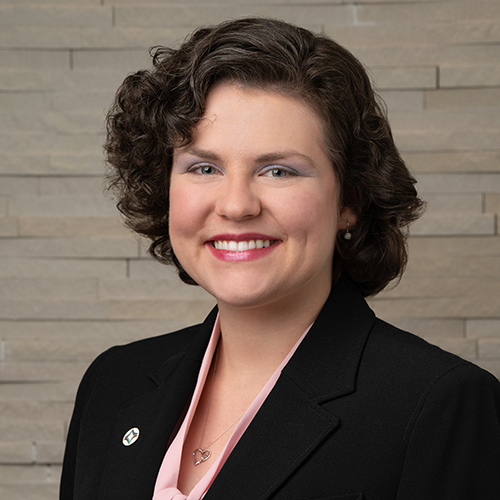Uncertainty about a career and the future can cause stress for any young adult, especially those with cognitive disabilities. But essential hospitals around the nation are taking steps to empower young people with disabilities and help them realize their potential.
Association member ChristianaCare, in Wilmington, Del., has been nationally recognized for its work with Project SEARCH, which provides internship experience and educational opportunities for young adults with disabilities.
The program has helped people, such as Chris Coulston, find their calling.
“What I really like to do is helping people, especially patients,” says Coulston, 20, who now works as a patient escort for ChristianaCare. “It just made me find that passion.”
Project SEARCH is a partnership between ChristianaCare; the Red Clay School District; the Delaware Department of Education; Community Integrated Services, a job search agency for people with disabilities; Autism Delaware; and POW&R (Productive Opportunities for Work & Recreation). Over nine months, participants perform three 12-week rotations in various hospital departments as patient guides or escorts, clerical workers, assistants in clinical engineering and food and nutrition, and other positions. Their goal: a job with the health system or another local organization.

Besides practical work experience, participants gain soft skills, focusing on team building, navigating a new environment, safety, social skills, and technology. Participants also learn job search and interview skills, money management practices, and health and wellness tips. Each month, program staff meet with the participants and their families to give updates on their progress.
“At the majority of those meetings, we have a box of tissues out in the middle,” says Angela Hansen, the Project SEARCH instructor at ChristianaCare. “Families for the first time are hearing the success stories and the strength and the growth that their young adult — who they may have been told wouldn’t be able to work, or would struggle — [is] doing very well and [is] involved in such a successful journey to become more independent.”

Don Booker. Photo courtesy of ChristianaCare.
The program not only benefits participants and their families, it also makes hospital processes more efficient. Project SEARCH participants rely on checklists or visual cues developed to help them accomplish tasks, Hansen says, and other departments have adopted these tools to help make their own procedures leaner.
“Those types of success stories, where we’re contributing to the greater good of the department and other people that are working in the department, certainly…[impact] the rest of the hospital and the patients that are coming,” Hansen says.
The program also highlights the importance of mirroring a community’s diversity in the workplace.
“When someone from the community comes in and sees somebody that looks just like them or may have a disability like they do, or a family member [does], it creates this comfort…a patient experience that allows a true level of understanding that this hospital, these people, understand what my needs are,” Hansen says.
In 2016, ChristianaCare won the Leading Disability Employer Seal from the National Organization on Disability, as well as the International Employer of the Year award from the Council for Exceptional Children’s Division on Career Development and Transition. To date, 39 people have graduated from the program, and 33 participants have jobs, 19 of whom work at ChristianaCare. A new program launches this month.

“When we’re pulling people from across the whole spectrum of abilities as we do through the Project SEARCH program, that not only lifts up those individuals and their families by providing meaningful employment to them, but it also makes us better at recognizing the differences among all of us and caring for all members of our community,” says Bettina Tweardy Riveros, Esq., chief health equity officer and senior vice president of government affairs and community engagement for ChristianaCare.
For Coulston and other program participants, the bonds built among the interns and staff were some of the most valuable parts of the program.
“It was such a good class,” Coulston says. “Everybody excelled, we were all part of something, and it was just a big family.”

